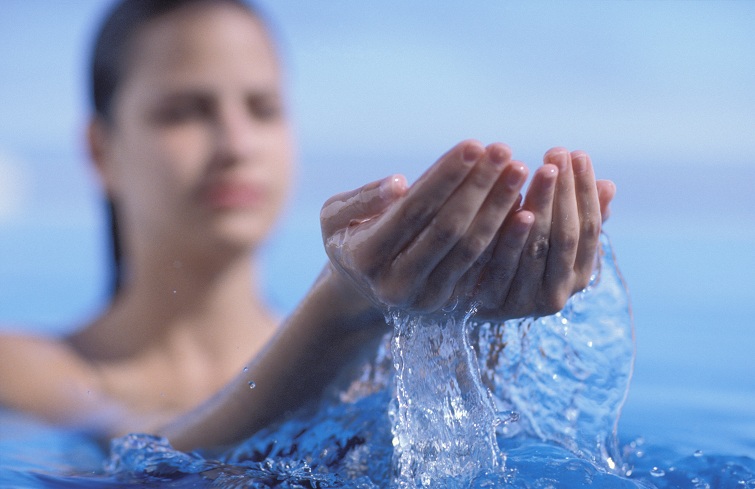The Importance of Water Balance
April 24, 2015 at 12:00 AM

Balance and harmony is the key to living. The same goes for your pool water. If everything is balanced, you will avoid a lot of potential issues with your pool, including cloudiness and algae.
Water balance is extremely important for a number of reasons.
- It helps sanitizing chemicals (i.e. chlorine and bromine) to work effectively.
- It decreases the chance for water problems, including cloudiness and algae growth.
- It prolongs the life of your pool equipment.
Keep Your Pool Chemicals Working
Maintaining the pH balance in your water will ensure you get the most out of your sanitizing chemicals. For instance, in water with low pH, your water is more acidic and will eat up the sanitizer faster. This doesn’t give your sanitizer enough time to do its job properly.
Fight Against Cloudy Water and Algae Growth
If your water is acidic, and your sanitizing chemical, such as chlorine or bromine, isnt’ working as well as it should, then you are opening yourself up to water issues. Your sanitizer’s job is to keep these issues at bay by constantly killing off the bacteria and debris that causes them.
Protect Your Equipment
Low pH causes your water to be acidic. In this case, your water will do whatever it takes to increase its pH level. Your water wants to be balanced. It’ll start to take what it needs from PVC, vinyl, concrete, and other parts of the pool, thus corroding and deteriorating your pool and equipment.
In fact, most equipment manufacturer's warranties do not cover damage due to low pH.
On the other side, if your pH is high, this can cause scaling. Your water tries to get rid of everything that’s making it alkaline, so it leaves a film around PVC pipes, heater elements, concrete, and liners. For instance, extra scaling in your pool’s heater will cause it to use more energy to heat your pool. It’s like clogging your pool’s arteries from ingesting too much unhealthy food.
How To Balance Your Pool Water
The first step to achieving perfect water balance is testing. If it’s the start of the pool season, take a sample of your water to your nearest pool store to have it professionally analyzed. You should do this at least once a month and you should test your water at home, with a test kit or test strips, at least once a week.
Pool Water pH
A figure expressing the acidity or alkalinity of a solution. Your pool water should be between 7.4 and 7.6 on the pH scale, which would properly balance your pool’s water. If your pool is properly balanced, when you open your eyes underwater, they will not burn. The water will be as balanced as your tears.
Pool Water Alkalinity
This is a pH stabilizer. It helps to keep the pH from moving up and down the scale rapidly. The problem with pH is that EVERYTHING can affect it, including:
- Animals
- Humans
- Plants
- Weather
By keeping your alkalinity levels between 100 and 150 ppm (parts per million) you will help to maintain your pool’s pH balance.
But remember, these numbers can change quickly, especially after rain. So, make sure you keep an eye on your water balance. By maintaining balance and harmony in your pool water, you will increase the life of it and avoid major water issues.
Source: Swim University